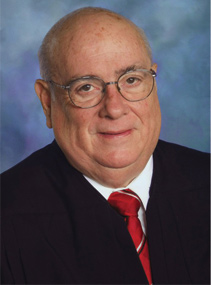
Royce Lamberth, Senior Judge of the United States District Court for the District of Columbia, participates in the Judiciary’s intercircuit assignments program and helps the Ninth Circuit Court of Appeals with a busy docket. Photo credit: Wikipedia.
Judicial vacancies and other factors have prompted a rise in the number of intercircuit judicial assignments, when judges volunteer in other jurisdictions to ease crushing caseloads.
“The demand for intercircuit assignments increased by 27 percent in 2017 from the previous year, as many courts juggling heavy caseloads looked for relief,” reports the Administrative Office of the U.S. Courts. “The increase was caused primarily by a large number of judicial vacancies. Other factors contributed, such as natural disasters and extended illnesses that temporarily impacted the availability of judges.”
For example, Senior Judge Royce C. Lamberth participates in the Judiciary’s intercircuit assignments program and helps the Ninth Circuit Court of Appeals with a busy docket.
“Intercircuit assignment requests typically are made by the chief judge of a court experiencing high caseloads. They must be approved by the circuit chief, and as required by statute, authorized by the Chief Justice,” the article explains.